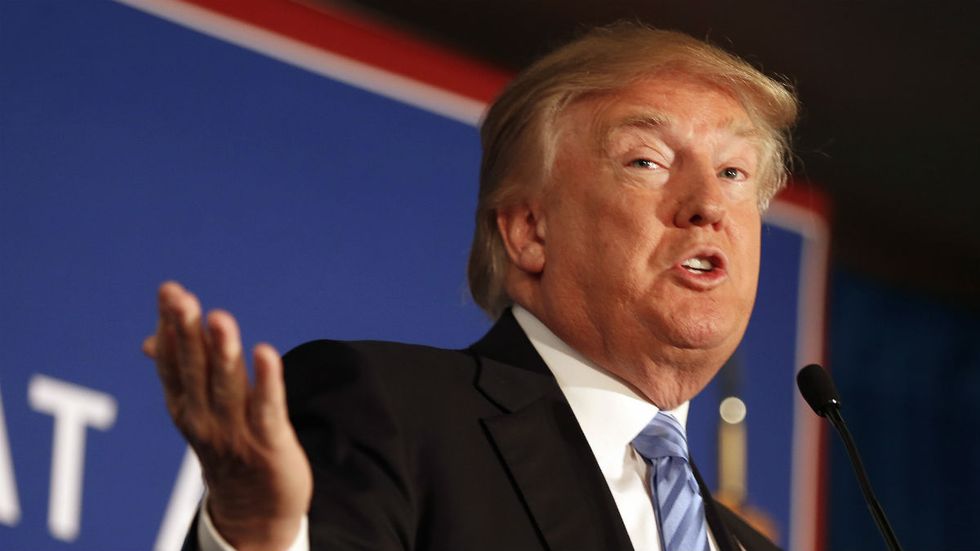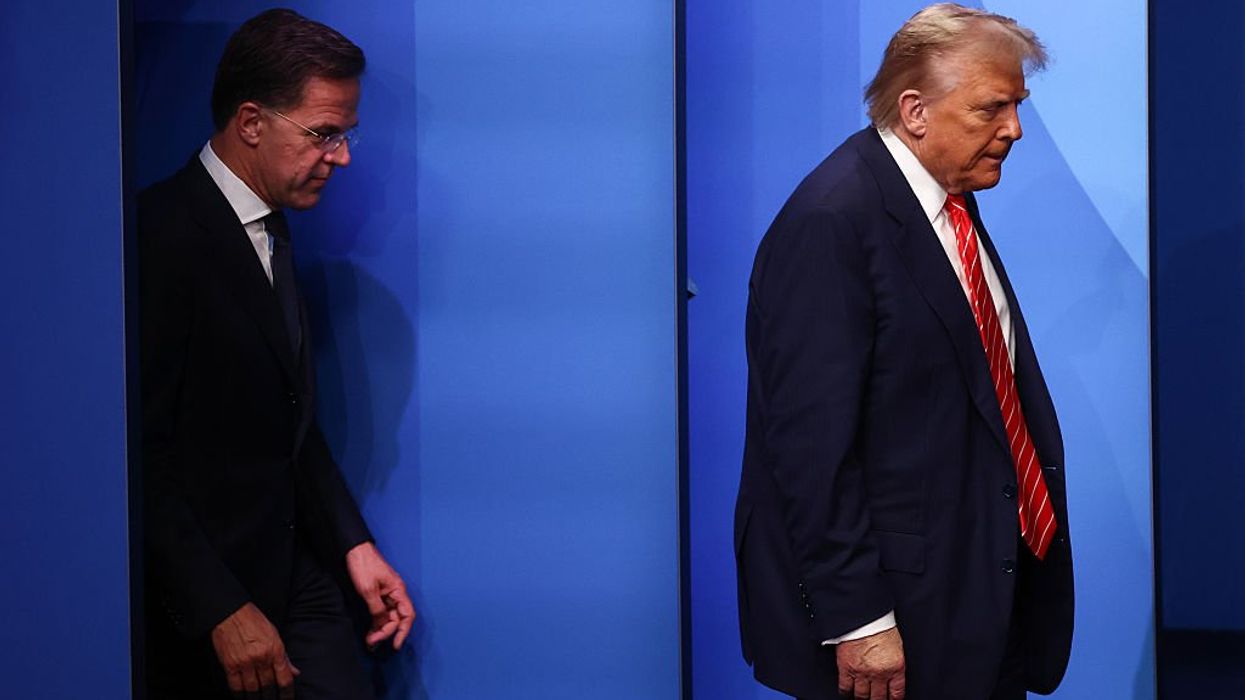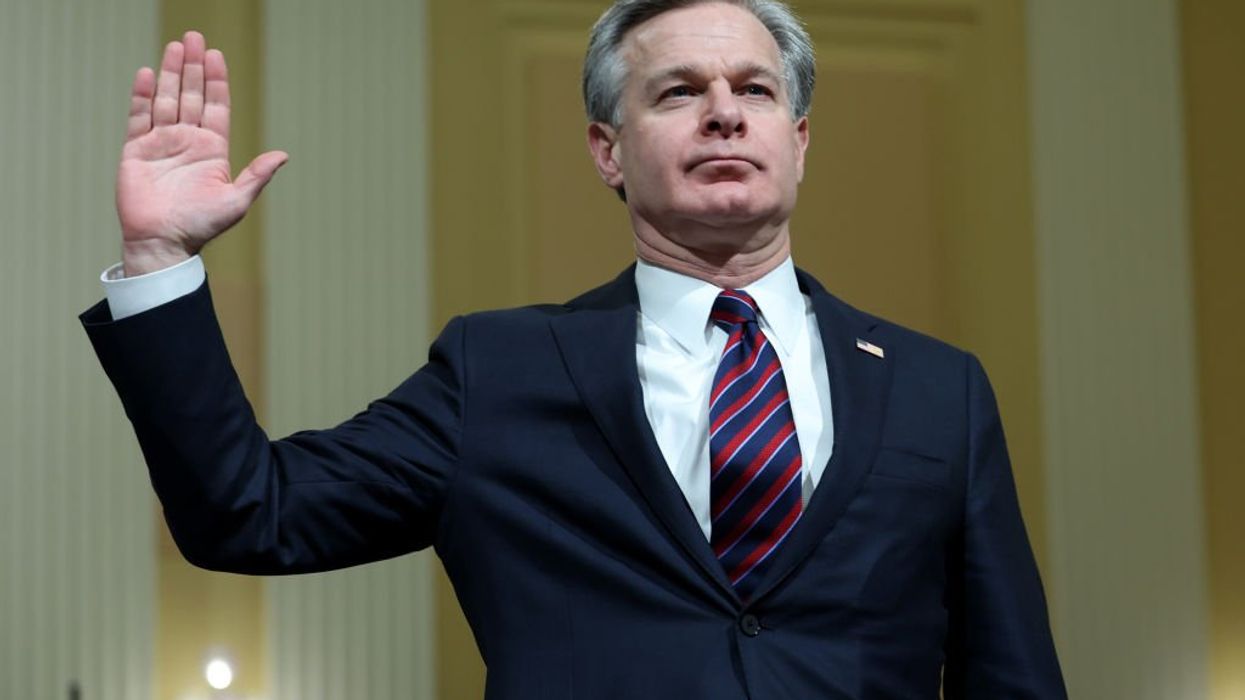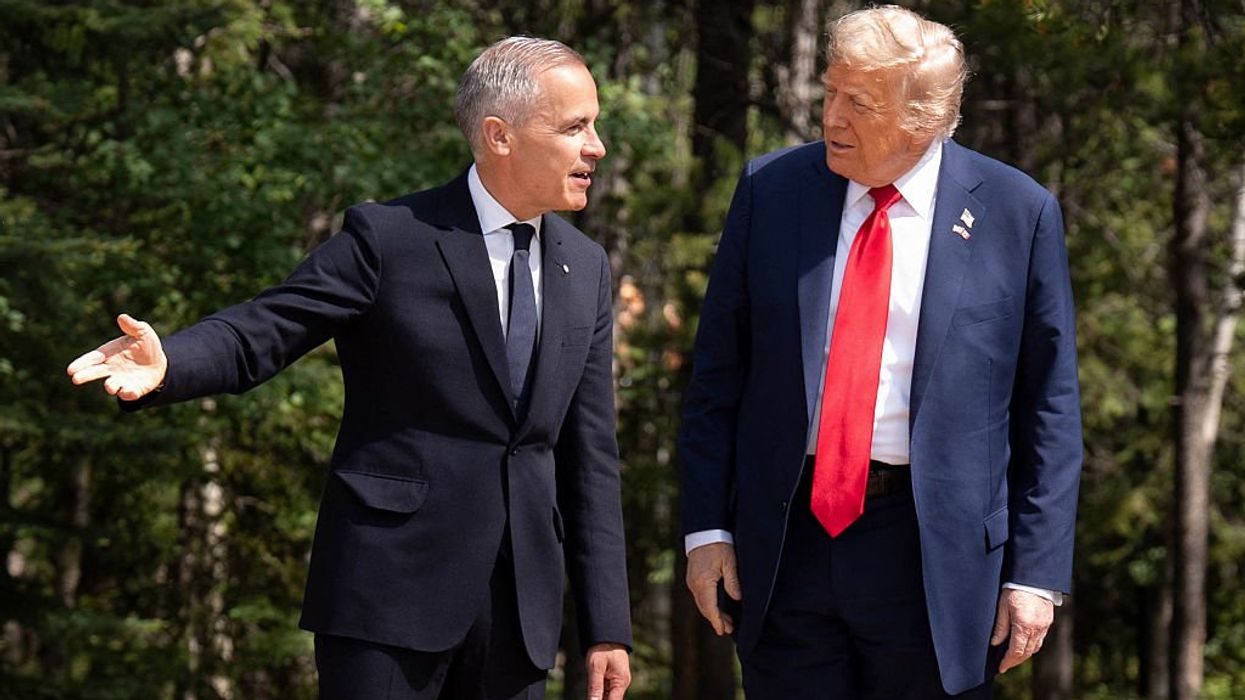
© 2025 Blaze Media LLC. All rights reserved.
I am hearing some support for Donald Trump coming from fellow travelers — tea partiers, constitutional conservatives, and even a few libertarians — in my grassroots community. So I have to ask: What’s up with that?
At a superficial level, I get it. I get the economic anxiety and a belief, completely justified, that insiders in Washington, D.C. are really all about themselves, not the rest of us. I also get the profound political paradigm shift that is taking control from party bosses and shifting it back to the voters and activists that participate in the political process. This democratization of politics is fueled by social media, the breakup of the big media cartel, and the ability of insurgent candidates to raise money and organize boots on the ground without permission from party headquarters or lobbyist money bundlers. Political disintermediation is a very good thing because it breaks up concentrated power.
I, along with about one zillion other grassroots activists, have been trying to get Grand Old Party Pooh-Bahs to take this paradigm shift seriously, to take us seriously, for years. I actually wrote a book about all of this in 2012 called Hostile Takeover. In response, the establishments in both parties have just attacked us, taking comfort in the hope that the all this disruption was just a bug, not a feature.
The power of social media has fueled outsiders like Ron Paul in 2008 and 2012, and now socialist Bernie Sanders. Enter Donald Trump, the Jedi Master of Twitter trolls. He is the odd man out in a field of insurgents, in that his rise is fueled more by name ID, a traditional criteria for political success. Trump’s campaign is about personal celebrity, riding his pop star status culled from many years on tabloid TV.
Those I know who support him seem to enjoy the pain he is inflicting on the Republican establishment. They have mostly given up on reforming the Republican Party and view Trump as a convenient wrecking ball. All good fun, no doubt about it. But at the end of this process, there will be a new president. And if you want to elect someone that actually respects the Constitution and limits on executive branch power, Donald Trump is not the answer.
Tea partiers, libertarians and constitutional conservatives are all about the rule of law, a simple set of rules that protects and respects the liberties of each of us. These rules should be, without exception, blindly applied, like Lady Justice would apply them. We hold the Constitution and the Bill of Rights in such reverence precisely because they protect the core values that make America tick: equal treatment under the laws of the land, with liberty and justice for all.
We don’t follow leaders. The tea party has always been a leaderless movement, celebrating the decentralized genius of the American model. Organizationally, it’s tapped into the personal and local knowledge dispersed throughout our communities. Our rise as a protest movement in 2008 and 2009 was fueled by opposition to the centralization of power among elites in Washington — not the rule of law, but the rule of man over men. Tyrants big and small have always embraced the idea that only a select few — namely, themselves — are eligible to lead. These chosen ones are always certain they alone are smart enough, much smarter than “the masses.” This is the radical progressive model, but it’s not ours. We don’t like centralized power and we never, ever, support the kind of unhinged governance that just throws policies at the wall to see what sticks. Both Franklin Delano Roosevelt and Benito Mussolini tried that, with disastrous results.
So when a Republican president overstepped the bounds of his constitutional authority to bail out well-connected investment bankers on Wall Street, we rose up in protest. We started organizing. When a Democratic president doubled down with a systemic expansion of executive branch authorities, we fought him every step of the way.
We will always oppose those who say that it is time to hand over more discretionary power to smart political leaders who will do whatever is necessary “to get the job done.” Right?
Not, apparently, when it comes to Donald Trump.
The assertion by some in the media that Trump’s support is primarily fueled by the “tea party” is grossly overstated; much of his support is fueled by Democrats, independents, and people who have not participated in politics before. At a recent Trump rally in Burlington, Vermont, many attendees saw similarities between Trump and socialist Bernie Sanders:
‘I’m a Trump guy, but I do like Bernie,’ said Peter Vincenzo, 59, who works installing hardwood floors and traveled from Ohio for the rally. ‘There are a lot of parallels between these two guys. There’s a populist appeal that comes with both of them.’
My beef with Trump has nothing to do with the very real questions about his previously-held liberal positions on issues. My friend Glenn Beck has done a good job documenting those. No one knows, but my suspicion is that The Donald doesn’t really have many well-defined views on political philosophy. What would be considered flip-flopping if practiced by any other politician seems to be a form of political arbitrage for the real estate tycoon. He’s constantly testing the political market for voters, throwing ideas against the wall, seeing what sticks. If he gets a positive response he says it again. If not, he drops it.
Trump’s real operating framework is one of supreme self-confidence. He’s smarter than you are, and he will be the first to let you know it. If you want to imagine how this will translate once Trump arrives in the Oval Office, just ask him. Here’s what he told a crowd in Dallas:
What would president Trump do? So I'd call the head of Ford or whatever company. But I'd call the head of Ford. I'd say congratulations. I understand you're building a massive plant in Mexico and you're taking a lot of jobs away from us in Michigan and other places. I don't like that. I don't like it. I just don't like it. And he will say, well, Mr. President, it's wonderful, wonderful for the economy. It's great. It's wonderful. Whose economy? Not for our economy …
So what I'd say is the following, I don't want you to do that. And if you do it, you're not going to have any cars coming across the border unless you pay 35 percent tax. That's it. No, that's it. And they are going to say, they are going to say to me, Mr. President, please, please, please. Now, I guarantee you, let's say I make this call at 9:00 in the morning. By 5:00 in the afternoon I think the deal is done.
Can you imagine our collective heads exploding if President Obama arbitrarily threatened the CEO of a private sector company with a special tax he has no constitutional authority to impose? Imperial President! A fundamental breech! Separation of powers!
If you are wondering where this model of governance comes from, check out the mutual admiration society that has developed between Trump and Russian strongman Vladimir Putin. "He is a very outstanding man, unquestionably talented," Putin opined in December. Trump responded in kind. “When people call you brilliant, it’s always good, especially when the person heads up Russia,” he told Joe Scarborough during an interview on MSNBC. The co-host of Morning Joe was taken aback, reminding Trump of the worrisome tendency of Putin’s critics in the press to die under questionable circumstances. “He’s running his country, and at least he’s a leader,” The Donald responded. “You know, unlike what we have in this country.”
At least he’s a leader? If this is Donald Trump’s definition of leadership, count me out.
Want to leave a tip?
We answer to you. Help keep our content free of advertisers and big tech censorship by leaving a tip today.
Want to join the conversation?
Already a subscriber?
more stories
Sign up for the Blaze newsletter
By signing up, you agree to our Privacy Policy and Terms of Use, and agree to receive content that may sometimes include advertisements. You may opt out at any time.
Related Content
© 2025 Blaze Media LLC. All rights reserved.
Get the stories that matter most delivered directly to your inbox.
By signing up, you agree to our Privacy Policy and Terms of Use, and agree to receive content that may sometimes include advertisements. You may opt out at any time.





